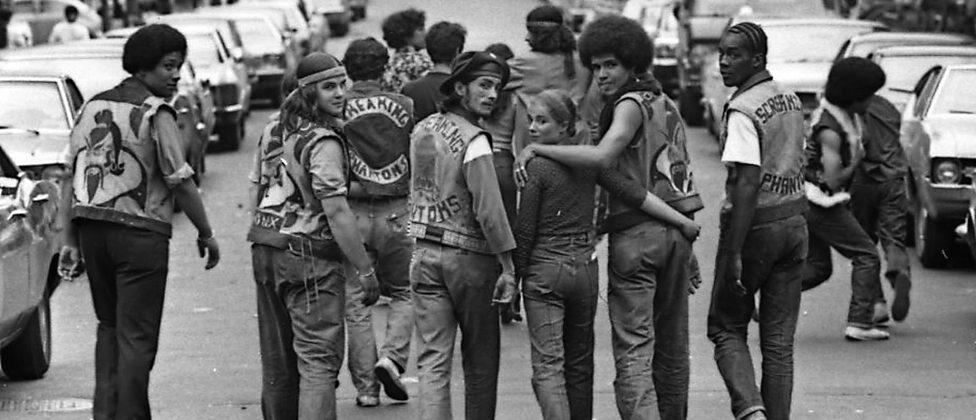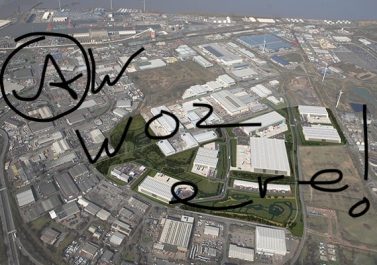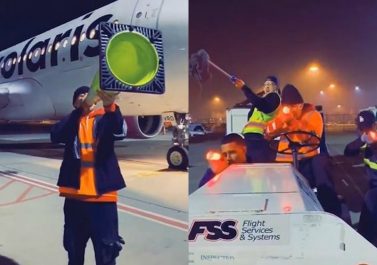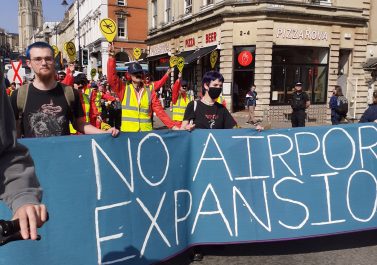Self-defence against bosses, migration police, racist scumbags and other enemies of the working-class doesn’t fall from the sky. Weekly drop-ins and individual support are first necessary steps – and they can be laborious. If you live in London and want to get involved in our west-London solidarity network or want to set up your own network, please get in touch.
angryworkersworld@gmail.com
——
We have written a longer article about the general aims of the network and our experiences so far which can be found here:
https://angryworkersworld.wordpress.com/2017/06/24/from-solidarity-networks-to-class-organisation-in-times-of-labour-hallucinations/
The following article is an update about stuff we did during the last six months. It is also written on the background of our West-London IWW workplace organising campaign that took place in winter 2017/2018. This effort slightly overstretched external supporters who had to travel to the western suburbs from remote places of London. In order to sustain a longer campaign we need a network of local working class people who have experienced the strength and effectivity of solidarity and who are willing to support unionising efforts. In this sense our solidarity network efforts can hopefully create the basis for a more sustained union campaign.
The general aims of the solidarity network are:
* to establish contacts and insights into the proletarian condition in the area;
* to promote working class mutual aid and direct action without professional middle-class help and financial interest;
* to encourage people we help to help others and thereby to expand the network;
* to focus the network towards support of people at their workplace, where their organic power lies.
While our work has been quite fruitful regarding the first two aims, the real challenge for all solidarity networks in times of a general low in class struggle activity are the latter two. In the last three months we’ve made a few small steps towards them, thanks to a few motivated workers we’ve met. We first describe their cases and the way we helped them and then look at the steps beyond.
*** Summary of recent cases
Truck drivers
G. is originally from Punjab, he came to the UK in the mid-2000s. Initially he worked without documents, but he now has the right to live and work in the UK. Most recently he worked as a truck driver for a small logistics company in the Slough area. The company is run by a well-off family also originally from Punjab. There are only three, four drivers and a few warehouse people employed. The drivers are on fake self-employment contracts. By sending a few letters from the IWW we managed to get G. £630 in outstanding wages. We then asked for payslips, to put more pressure on the boss and he agreed to pay another £330 ‘tax return’ instead – in compensation for the fact that the employment was not officially registered. We finally got another £90 for overtime – G. had to wait in a broken-down truck for several hours. G. will soon start at one of the world’s biggest airline catering companies and already has some friends working there. Hopefully this will deepen contacts with workers in this major corporation.
Through G. we got to know his friend D., who worked as a truck driver for a similar company called Navco Builders Merchant Ltd., again as fake self-employed: driving a company truck, servicing company clients, working under company management supervision and orders. He wanted to leave the job and gave one week notice. Management asked him to give one month notice. He refused and a few days later got into an altercation with the manager, who sacked him on the spot. We sent some IWW letters and the company finally paid £650 for failing to give him a week’s notice – something they would not have been obliged to do. In all cases we argued that the self-employment of the drivers is fake and referred to recent court rulings – something that made an impression on company management.
D. got us in touch with J., another worker from Punjab who still worked as a driver and loader at the company. He lived in Italy for 16 years and started working at the company a year ago. He speaks very little English. His contract says he is employed 32 hours a week, paid at £12,500 annually, but he often works more than 50 hours, which means that he is paid below the minimum wage. There are only few other workers employed and they tend to be scared. Holiday pay is not paid out (the contract says that they are paid after termination of employment). The company doesn’t issue payslips regularly, even after repeated requests. Payslips show that NICs are paid, but no tax is deducted. It looks like the company hasn’t registered the employment. Given his low level of English we were cautious not to do anything that might cause him to get sacked. He has now left the job, we filed a tribunal case over £8,000 for outstanding holiday pay and compensation for not being paid the minimum wage. The company reacted to our initial demand letter by visiting the driver (he left the job) at home (boss, brother, plus another man), threatening him (“why did you do this, your wife is at home alone, your kids go to school alone” etc.).
We encouraged the worker to file a case regarding harassment and we visited the office of the company to make clear to management that the driver is not alone. Seeing at this workplace is obviously a chronic offender, we will try getting in touch with people still working there.
Shortly after these cases a worker from Poland, employed as a truck driver by a different company in Slough got in touch. He had left the job and the company withheld his wages, saying that they had paid £1,000 to his agency to transfer him into permanent ‘self-employment’. After a letter we sent that denounced their self-employment as fake they paid him the outstanding £360.
Through this network we got to know S., an Afro-Caribbean mechanic, who worked for a small company in Slough area. After he left the job the company refused to return his tools. The case is still pending.
Courier drivers / Amazon
In 2017 we supported workers from Bulgaria who were hired through agency to work in an XPO warehouse for House of Fraser in Milton Keynes. We collaborated with comrades of the Autonomous Workers Union in Bulgaria. Our SolNet phone number circulated amongst some workers from Bulgaria, we get occasional phone calls from workers employed in other warehouses or farms around the country. Most recently we were contacted by two courier drivers who work for MPH England Ltd. in Kent, as self-employed courier drivers at a local Amazon parcel distribution centre. The workers hire the cars from the agency and only work for Amazon. They often work seven days a week – the agency puts them on different names in order to avoid infringement of the driving regulation. The agency tried to withhold three weeks wages in one case and £560 for alleged damages in the other case. We send letters from the IWW pointing out the illegal nature of such wage cuts and threatened with complaining to Amazon about the agency and their practices. They paid immediately.
Apple farm workers
R. a worker from Bulgaria who was involved in an overtime boycott at XPO warehouse in Milton Keynes contacted us after he was sacked from an apple farm in Kent run by AC Goathams. In September 2018 workers there had disputes with the supervisors, who imposed arbitrary penalties. These penalties resulted in a drop of hourly earnings below £5. A group of twenty workers stopped working in protest, our contact translated for this group of Bulgarian workers and was subsequently sacked. We contacted management as IWW, but the worker had already found a different job and didn’t want to return to the farm.
Bus and rail-track cleaners
A., a cleaner employed by Ledeac, a big service company, contacted us recently. He has worked there 11 years as a night-shift cleaner in a local bus garage. Four years ago the contract was taken over by Leadac. Recently Leadac lost the contract to Nationwide, the contract will run out next month. Over the last year management has been targeting and bullying workers. A. was shifted from his depot to a different bus garage without notice in September 2017 – he only returned to his former garage recently. He has received three disciplinary letters this year, but each time management said that the matter is solved days before the disciplinary meeting. He says that the depot manager is racist and that he said in front of people that he wants to get rid of everyone. 12 people have left recently. In total there are about 15 people employed by Leadac. In the week before he contacted us A. was suspended without reason after an argument with the manager. He tried to contact management, but they didn’t answer the phone. He called UNITE, they said they would call back, but didn’t. The other colleagues, mainly Goan, are scared, they need the overtime. They bribe managers with gifts. We tried to call the two managers, but they didn’t pick up, neither mobile phone nor landline. We called the UK headquarter’s HR department, but they could only give us the same managers’ numbers. We finally sent a letter to the manager and the official Leadac email address, confirming that A. wants to return to work and seeks clarification. After a week and no reply went to the bus garage to go to the company office. Two Polish managers were in. We explained the issue and the office manager signed that they received our letter. The garage cleaner’s manager said to us: “But you should tell your clients how to behave at work”, which caused another argument. Our friend accused the manager of pushing out 12 people and he replied: “I know, but now I have a good team”. Our friend said that the manager wants to get rid of African cleaners and replace them with Polish ones. After one week he was taken back to work without any investigation – he received full wages for the time off. We were going to look into issuing a collective grievance against the depot manager but shortly after being reinstated, A. decided to leave for another job.
F. worked as a track-cleaner for AGS agency for Transport for London. He is originally from Goa. We helped him getting his outstanding holiday pay. In return he came to the protest against accidents at Noon / Kerry Food – see leaflet below.
Greencore food-factory worker
In winter 2017/2018 we distributed IWW leaflets at the local Greencore sandwich factory in Park Royal. At the time we didn’t receive much response. Eight months later Y., one of the workers contacted us after he left the job and Greencore didn’t pay his statutory sick payment. We supported the worker – originally from Marrocco – and hope to get to know some of his former work-mates who are still employed at Greencore.
*** Political significance of the cases
There are a few things to remark about these cases:
* The transport companies are not scared of us or workers’ actions really, but of being reported to the authorities because of illegal (usually tax) activities;
* The fact that workers want to get back at the bosses despite them being ‘respected members of the same (Punjabi) community’ is promising from a working class point of view;
* Workers feel still too weak to start fighting back while still in the job;
* Helping these workers has established some contacts within bigger companies, which might turn out to be fruitful in future;
* The Bulgarian workers cases show that workers are better connected and more mobile than we are; if we had the capacity we could follow their lead and organise farm workers etc. around the country
* The Greencore workers case demonstrates that workers keep leaflets etc., and use them when necessary – just because our leaflets don’t get an immediate response doesn’t mean that no contact has been established
It is nice to see bosses paying substantial amounts of money that they thought they could fleece off workers. More importantly for us is the fact that G. And D. decided to stick around and support the solidarity network. So far this support has consisted of:
* Translating a flyer introducing the network into Punjabi; they suggested putting this flyer up in local (Sikh) temples and other places in the Southall area;
* Helping with the distribution of an IWW flyer to mainly Indian sandwich factory workers (Adelie). It made a major difference that they, as workers from Punjab who had received successful support from the solidarity network, addressed the factory workers;
* Helping with the draft and distribution of a leaflet about work accidents at one of the bigger local food factories (Noon/Kerry Group); G. had worked at the factory as a nightshift cleaner when he was without documents ten years ago. He nearly lost two fingers due to a work accident – see leaflet below.
We try to build on these modest steps, e.g. by organising a monthly social gathering where all people in and around the SolNet can come together. We write about the cases in our local newspaper, to encourage workers to engage in collective self-defence. We always need help with maintaining and expanding the network, through attending the weekly drop-ins, putting up posters, meeting fellow workers. If you live in London area, feel free to join in – according to needs and ability.
For working class solidarity and emancipation
AngryWorkers, October 2018
————
We distribute this leaflet to current workers at this factory on behalf of G. who almost lost his hand in a work accident there. Please join us at 1pm at the Noon/Kerry Food factory on Sunday, 23rd of September. It is the main factory gate on Windmill Lane, close to Uxbridge Road/Iron Bridge in Southall, UB2 4NA. Email us at angryworkersworld@gmail.com if you want more info.
Ten years after work accident at Noon/Kerry Food: We still want compensation!
Our friend, G., worked as a night-shift cleaner at Noon in 2007. He was employed by Gold Trim Contracts Ltd.. G. was new in the UK and his English was poor. The training given by the cleaning company was inadequate and not translated into Punjabi. While Gold Trim Ltd. had no problem employing migrant workers without papers, they did not bother to explain the health and safety procedures properly.
On 18th of April 2008, at the end of the night-shift, G. was cleaning the bratt pan when the lid fell down on his hand, nearly severing three fingers. He needed a major operation and couldn’t use the hand for a year. He lost several thousand of pounds due to the accident.
G. tried to get compensation, but Gold Trim and Noon Kerry Food first blamed each other for the accident and then said that it was G.’s own fault. G. could not afford to pursue the case.
We are hear to show solidarity to our friend. We work in local factories and warehouses ourselves. We know that cleaners, like other workers, are always pushed to clean more in less time. We know that working night-shift and being stressed will cause accidents. We know that the health and safety training is often a joke and that the companies try to save money on maintenance.
For all these reasons we think that a multi-million multi-national company like Kerry Food, should still compensate our friend for the pain and financial loss. But we are also here to tell you guys, who are working at Noon now: make sure that you are safe, the company will just kick you out when you get injured! Don’t work too fast, don’t use machines and tools that are not fit for purpose.
In case you have any problems at work, we are here to help. Call us for advice – 07544338993 – or see us at following meetings:
First Monday of the month: McDonalds Greenford, Retail Park, UB6 0UW
Third Monday of the month: Asda Café, Park Royal, NW10 7LW
Fourth Monday of month: Poornima Café, 16 South Rd. Southall, UB1 1RT
For working class solidarity



